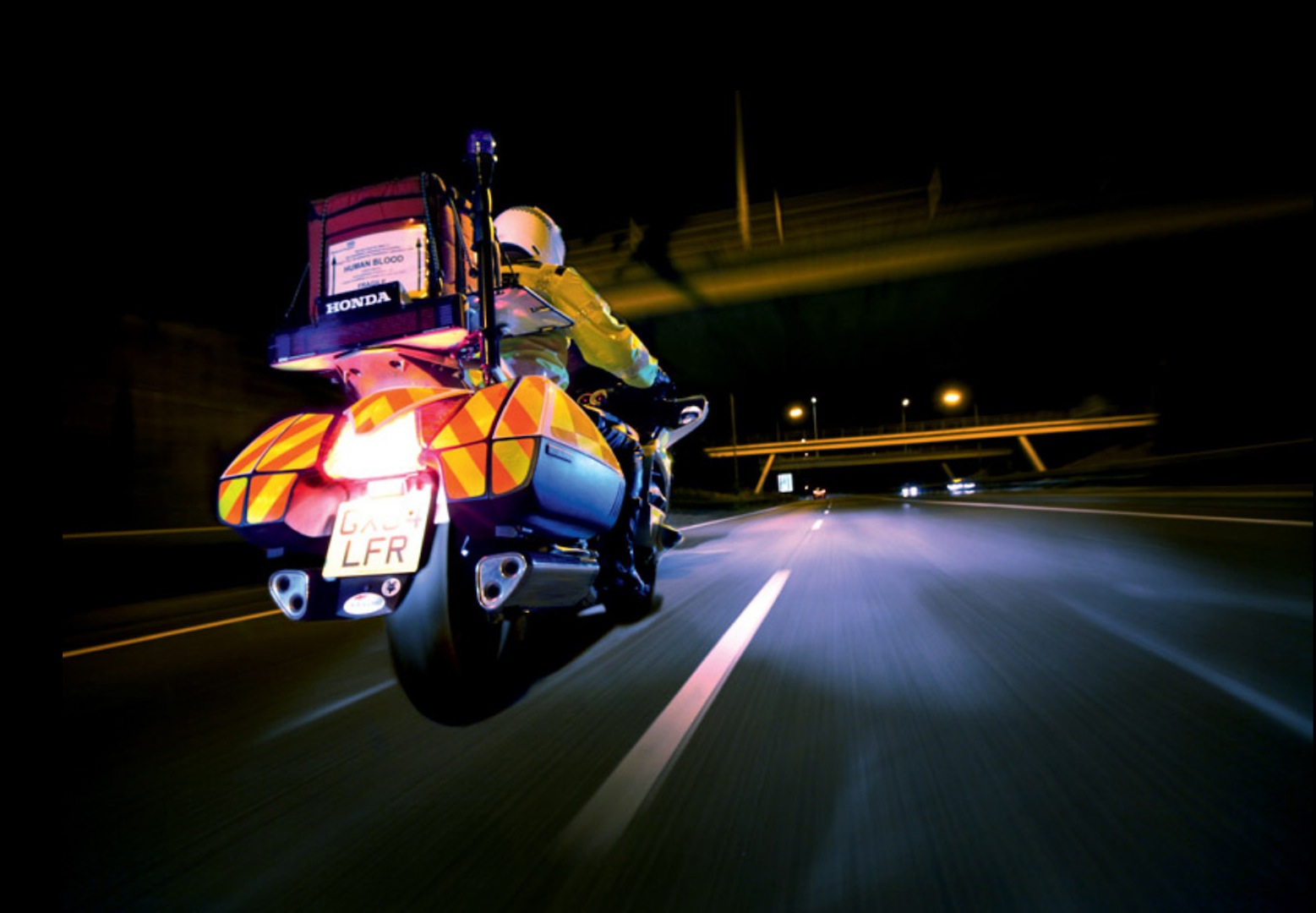
The received wisdom says you should never go back; LP Hartley famously said “The past is a foreign country: they do things differently there” and who am I to argue with that? There’s no denying though that my past has, to some degree, become my future.
Some of you might remember my ‘Black Rat’ column from the earliest days of TRD, back when it was little more than a photocopied publication aimed at London’s despatch riders. Back in 1998, I was working in London for Bonds as a despatch rider on a liveried Pan Euro ST1100 and each month I’d write 1,500 words for TRD about life on the road.
Fast forward 15 years and a lot has changed. I’m no longer a despatch rider – I left that behind in early 2000 to become a freelance journalist, a choice that has taken me around the world and shown me some fascinating (and occasionally dark) aspects of life. I’m no longer based in London either – I live in Belfast now and although I still do the odd bit of journalism, I earn most of my living as a ghostwriter. That’s the stuff that’s different. The parallels? I’m back delivering vital packages on a Pan European and I’m writing about it for TRD once again. QED: my past, and my future.
It’s funny how things work out. Back in 2002 I was lucky enough to be invited by South Yorkshire Police to spend some time on a marked police motorcycle so I could write a feature about life as a bike cop but, before they’d allow me to run around answering calls on blues and twos, they put me through a course to teach me how to do so. I had no idea then that what I learned would prove so useful eleven years later.
The reason I’m back on a Pan, and the reason for my reappearance in this magazine, is the precious cargo that I carry when I’m on shift: human blood – samples for urgent analysis and whole units for transfusion, which my colleagues and I collect from various blood banks and transfer straight to the hospital where the patient is waiting. That course I did with South Yorkshire Police has proved useful for those urgent calls we get, which mean running across Belfast on blues-and-twos to ensure we get the blood where it’s needed, in the shortest time possible.
Blood bikes have been operating in the UK for more than 40 years. The service began on April 1st, 1969 in Stevenage, when a youth community action group named Freewheelers was established to encourage experienced bikers to use their riding skills to provide a fast and reliable courier service to local hospitals. Using the model created by Freewheelers, other groups were established across the UK and Ireland over the years, operated and run by volunteers and funded entirely by sponsorship and donations from the public. The reason? Well, the NHS largely relies on taxis to transport medical essentials outside of core hours. This makes a huge dent in an already over-stretched budget. Blood Bikes provide a vital service, which is entirely free to the NHS – the hospitals we serve save between £20 and £50 every time we undertake a run for them.
The objective is simple; we provide an out-of-hours emergency service to transport urgently needed units of blood for transfusion, human tissues and other medical requirements between NHS facilities. To do this we use specially adapted motorcycles to assist local health trusts by providing fast, safe and efficient transport from NHS labs or blood banks to hospitals or other facilities. The bikes we use are all fully-liveried ex-police Honda Pan Europeans and Deauvilles, complete with blue lights and tri-sound sirens; on an urgent run, these are used to full effect to ensure that we get the blood from bank to patient in the quickest possible time. The distances we cover may sometimes be short, but Belfast’s rush-hour traffic is amongst the worst in the UK so every second we can steal is of paramount importance when it can mean the difference between life and death.
Although a patient may be waiting on the operating room table for the blood that we carry, there is another factor that contributes to the urgency and it’s the fact that the cold chain for human blood has to be observed and protected at all times. This means that it has to be kept at a constant 4°C as once it’s outside of a refrigerator it’s only viable for 30 minutes; any longer and it has to be disposed of, so it’s imperative that we get it from pick-up to delivery point fast. Every second counts.
The service has only been operating in Belfast since the end of January this year but we’ve already completed well over 1,200 individual taskings and the number is increasing daily. It takes a surprising number of riders, all of whom give up their time for free, to ensure we have cover when it’s needed. The riders in the team are a great bunch and include an airline pilot, a retired publican and several advanced motorcycle instructors. There are two husband-and-wife teams, and everyone has an advanced riding qualification. Age wise, we’re all the wrong side of 40. The esprit de corps is brilliant though, born of a unity of purpose and conviction, a belief in what we’re doing, and all of us derive an enormous sense of satisfaction from doing something worthwhile. For me it’s also the perfect counterfoil to my freelance existence, which sees me working from home for extended periods; I actively look forward to my weekly shifts.
We certainly don’t do it for the weather; more often than not showers and rain are our constant companions, bar one ten-day period early in June when the temperature in Belfast was hotter than LA, Madrid and Paris and we saw clear blue skies and bright sunshine throughout. But hey, this is Belfast. It rains. You live with it.
The riding’s good, though it’s taken me a while to get used to the way people ride bikes here. After cutting my biking teeth in London traffic, it was a bit of a culture shock when I saw so many riders here sitting in traffic, nine, ten, sometimes more vehicles back from the white line at the lights. That’s inexcusable enough in summer but hey, if that’s your thing then each to his own, but in winter? Why? Why would you do that? Why suffer riding a motorbike in sub-zero temperatures if you can’t buy time with it? If you want to sit in traffic, go by car – at least you’ll be warm and dry. You could listen to the radio, or read – that seems to be the latest fad among some of the more ‘switched-off’ car drivers stuck in the daily hell of commuter traffic. Why not join them? If you’re so out of touch with how to ride a bike that you’ve forgotten what your instructor told you about ‘making progress’ you’re hardly likely to be bike aware when you’re behind the wheel now, are you?
A great many bikers here don’t respond the way I expect when I’m driving a car either. If I see a bike in my mirrors and there’s space for me to do so, I always move over. And I’m generally left wondering why I bothered, as, looking in my mirrors again, I see the same bike sitting behind me and an all but empty twisting ribbon of tarmac snaking into the distance ahead. Make room for a bike and sit in wonder as nothing happens. I don’t think I ever saw that when I lived on the mainland.
Seeing bikers filtering here is unusual enough that it’s notable when you actually do see someone on a bike gap-chasing and riding the broken white line. Given the glacial pace that traffic moves at during rush hour here, any biker who chooses not to filter is in danger of being overtaken by continental drift. I’ve heard several theories for this, most of which revolve around the fact that severe traffic jams are a relatively recent phenomenon in this wee city, so bikers never needed to filter previously, thus it’s a skill rarely used. Really? Maybe it’s a London-centric skill, little used by anyone outside of the Capital but I don’t think so. Perhaps you could enlighten me.
Traffic jams are why Blood Bikes came into being in Belfast; well, those and the flag protests which made global news and threatened to drag Northern Ireland back into the dark ages between September last year and the first few months of 2013. A daily diet of violence, blocked roads, rioting and security alerts, allied to Belfast’s latest import – bus lanes – were a recipe for disaster and they brought utter gridlock to the city’s already crowded roads. The bus lanes were introduced earlier this spring and they brought utter misery to Belfast’s frustrated commuters, snarling up traffic and bringing the City to a standstill. This had an obvious impact on the ability of the blood banks to ensure that urgent supplies would get to their destination on time as, even the NHS Blood Vans, which are also equipped with blues-and-twos, had problems getting through. The Blood Bikes offered a seemingly perfect solution.
It’s tiring; riding on blues-and-twos is a privilege, but it’s mentally exhausting and at the end of each shift, I feel utterly fatigued in a way that I haven’t experienced since my early days as a courier in London. That said, it’s a nice tiredness and it comes with a feeling of a job well done. We’re only a tiny cog in a massive machine, but I’ve yet to find a sense of job satisfaction remotely close to what I feel having just delivered six units of blood for an urgent transfusion and I’m looking forward to watching this fledgling unit that I’m a part of grow…
Antony Loveless
Follow me on Twitter: @antonyloveless
bloodrunner@theridersdigest.co.uk
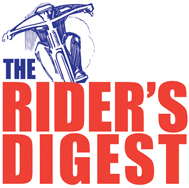

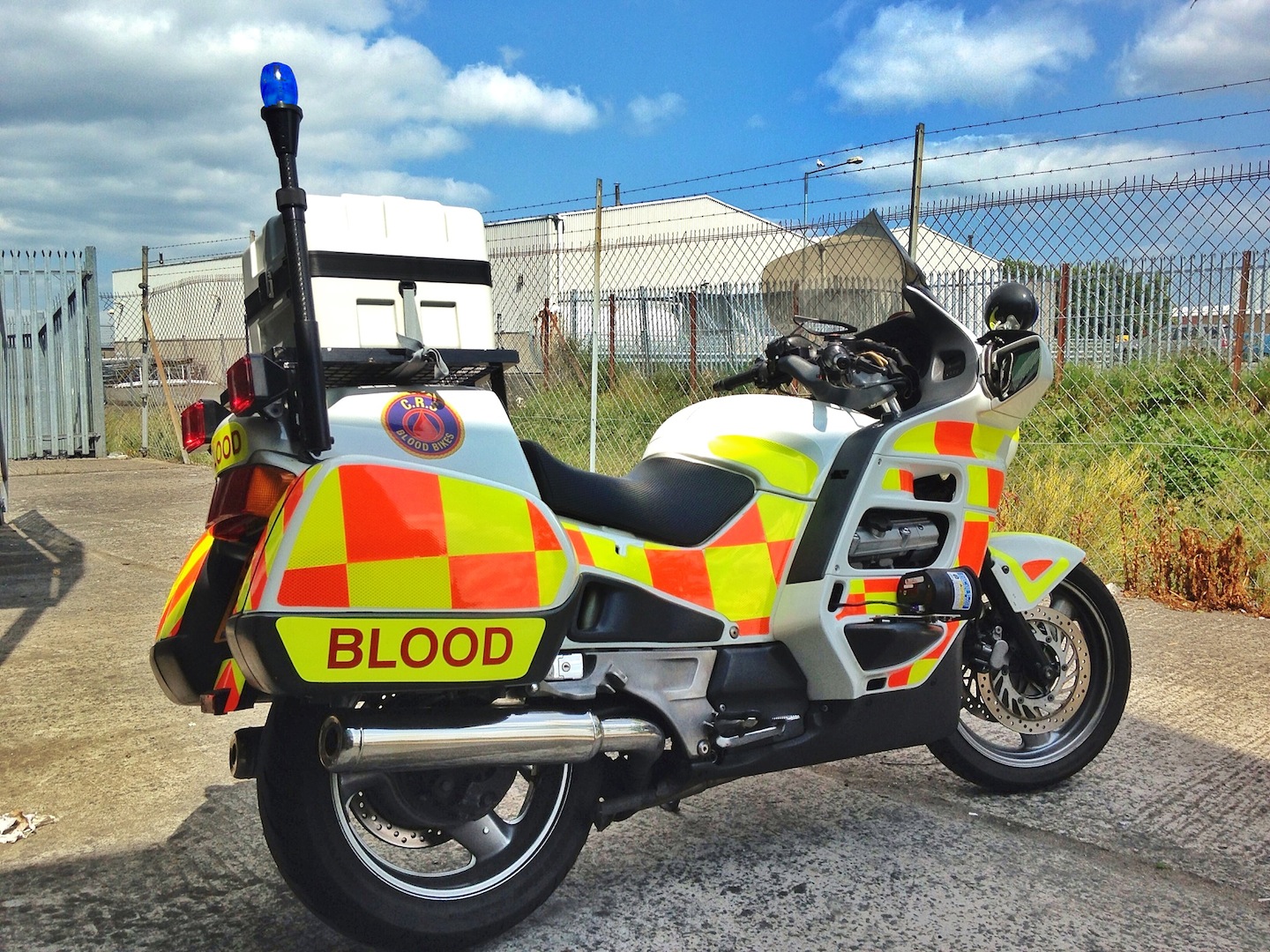
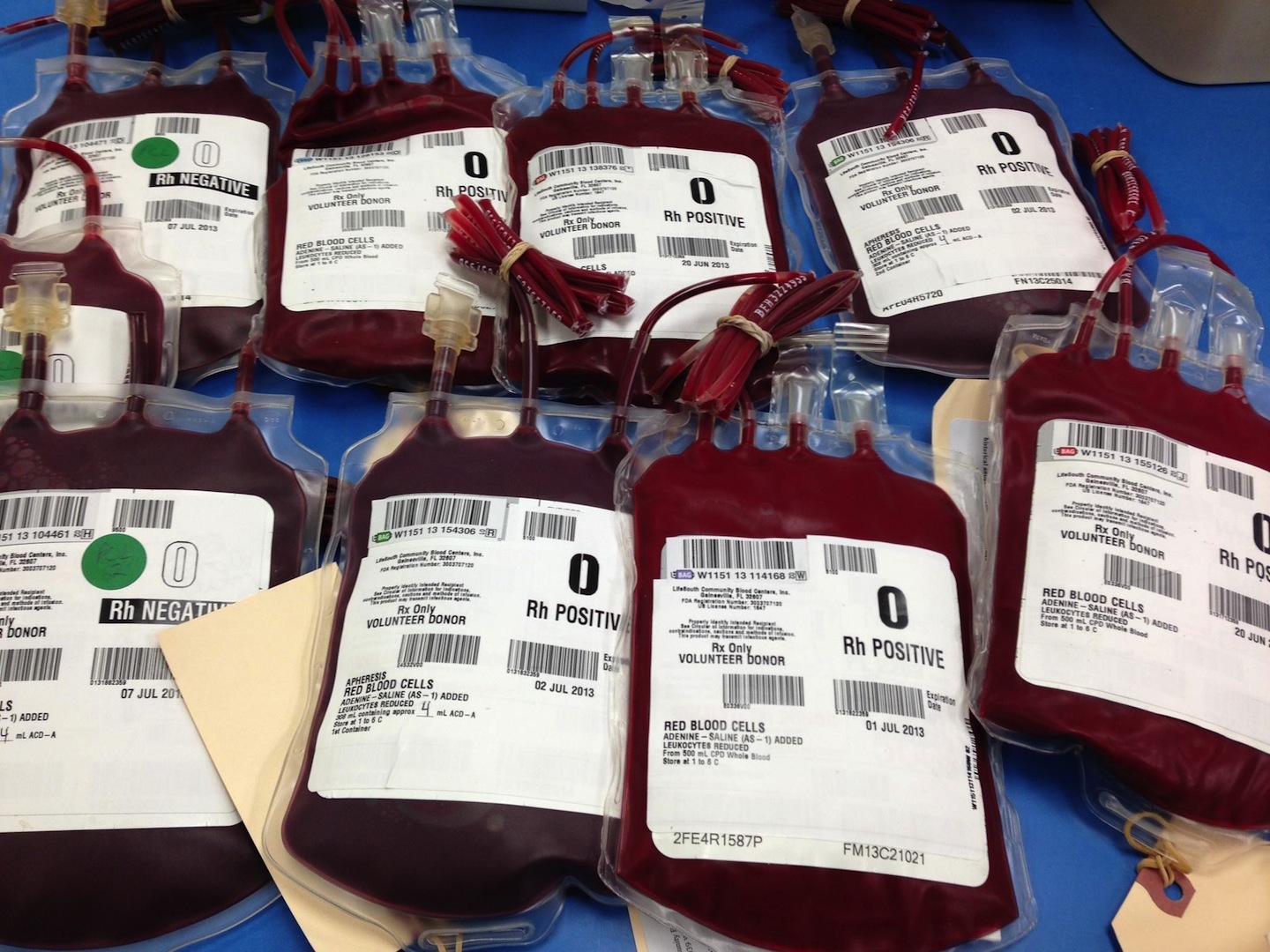
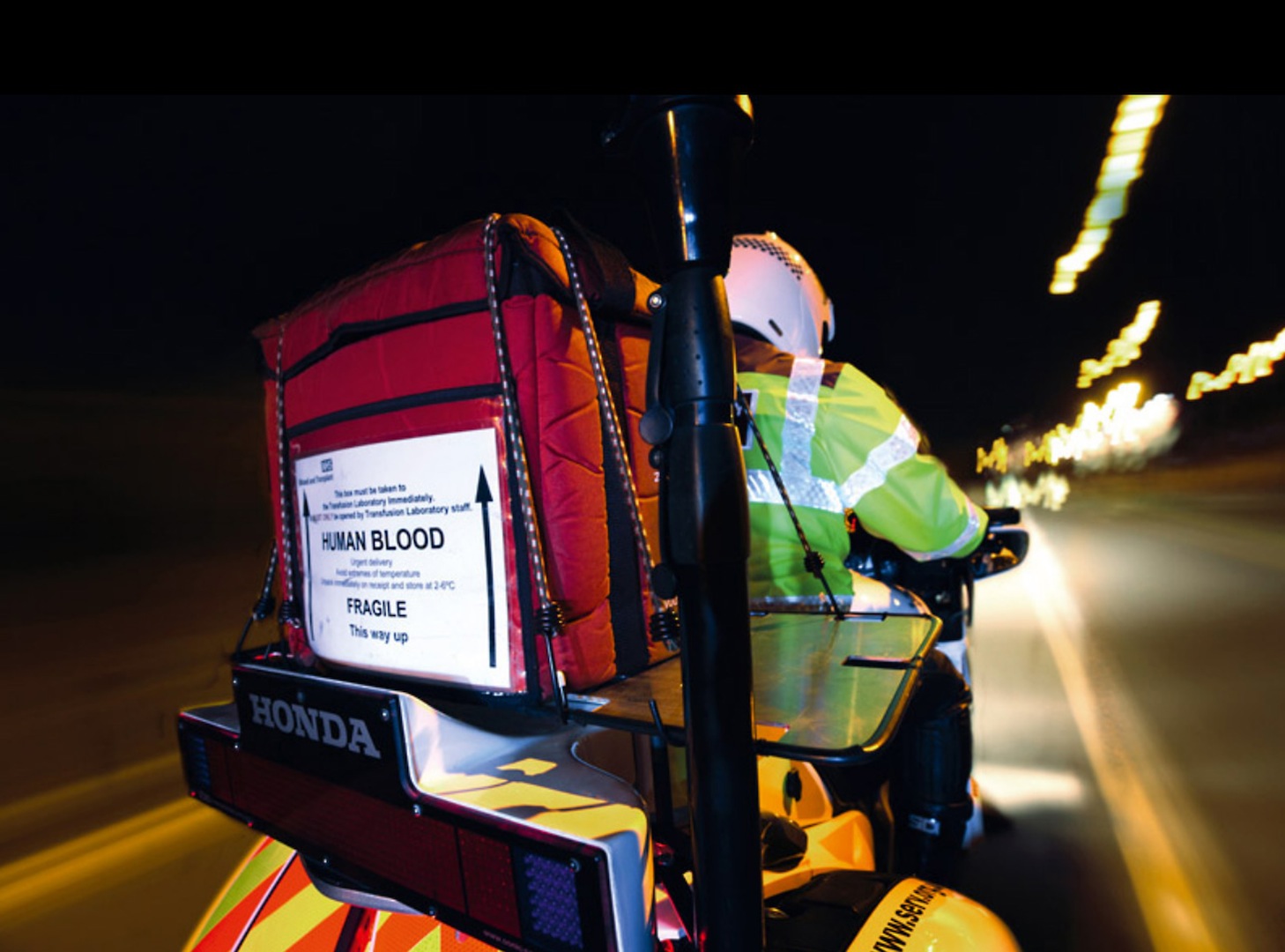
Good article, Gave me a lump in my throat. Mind you I’m one of those bikers stuck in traffic (sometimes), relearning after a 40ry gap.